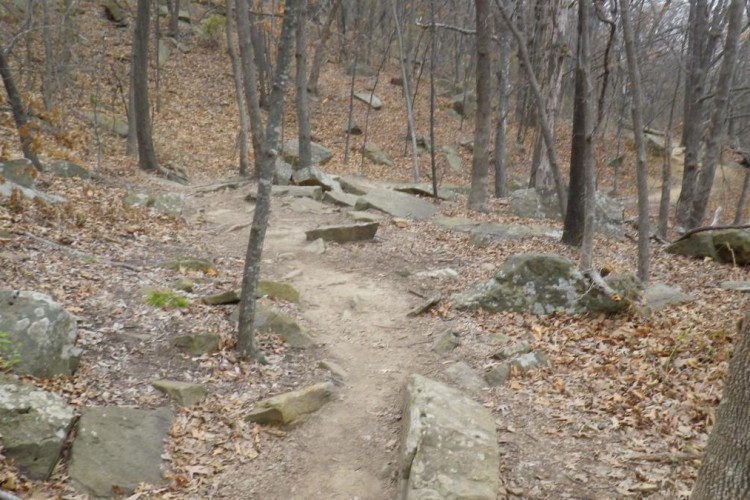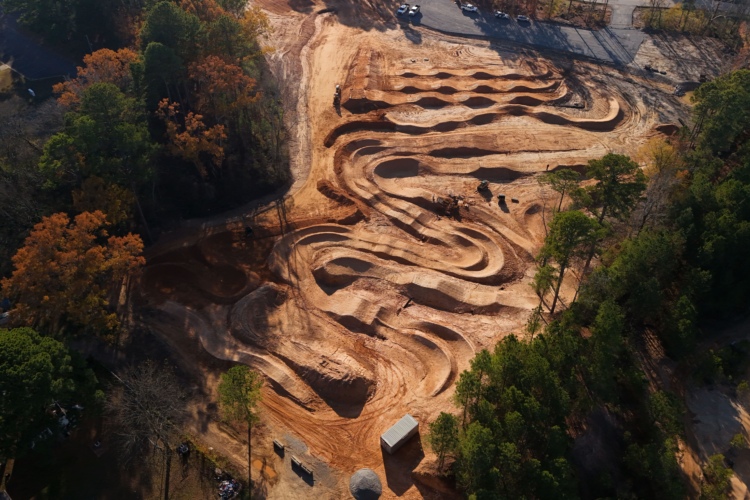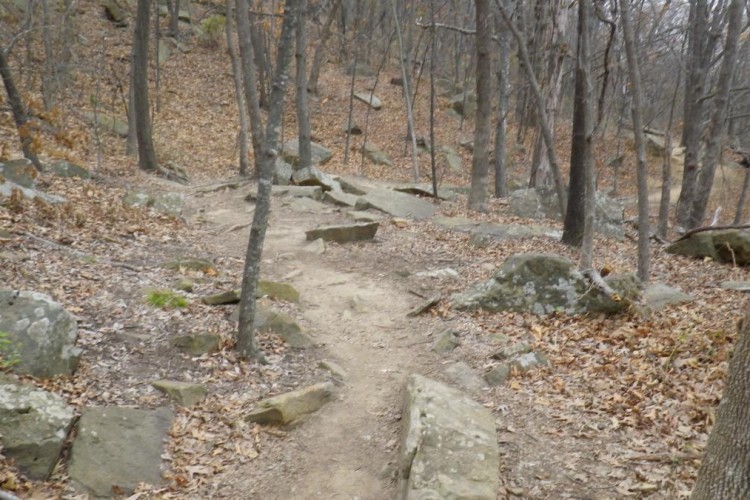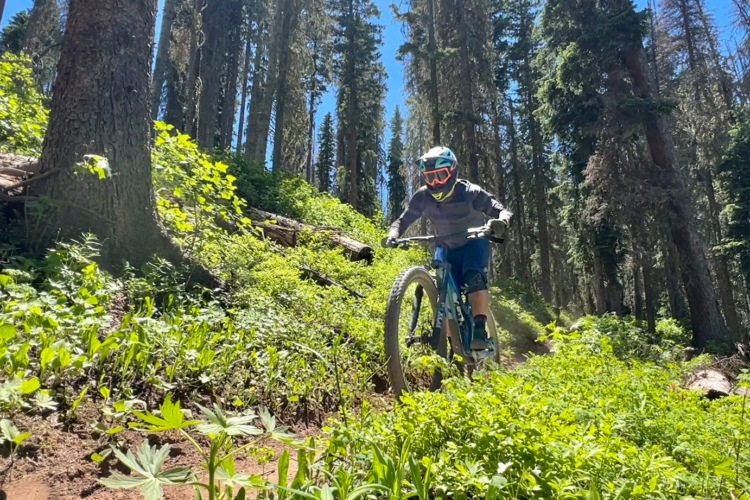
The Turkey Mountain Urban Wilderness Area overlooks the city of Tulsa, Oklahoma. The former oil drilling site was protected from development by the local community, some of whom began cutting trails through it back in the 1970s. But thanks to large investments, the site has been totally transformed into an outdoor recreation paradise. It’s now home to some of the best singletrack the region has to offer and the only downhill trails in Oklahoma.
Singletracks reached out to Rob Grunnagle with Progressive Trail Design and Ryan Howell and Jeff Edwards with the River Parks Authority to learn how this small slice of wilderness amid a metropolis has been transformed into another great mountain bike destination.
Turkey Mountain has been a favorite recreation area for Tulsa residents since the 1970s, but its trails were not very fun to ride.
Turkey Mountain is an anomaly. While Tulsa has grown up and developed around it, the site has remained undeveloped since people stopped drilling for oil on it sometime around the middle of the last century. It has approximately 300 feet of elevation from its base by the Arkansas River to its highest point.
Residents of Tulsa seeking outdoor recreation have been drawn to Turkey Mountain for decades. It is a slice of urban wilderness located just minutes from downtown and within riding distance of most of the city’s residents. Plus, it is one of the highest points in the region.
Howell told Singletracks that the site had approximately 25 miles of social trails cut into it. “They were mostly game trails that had gotten ridden in over the years and had turned into a washed out, extremely rocky, perpetually muddy trail system. Most every trail was cupped, eroded, or poorly placed.” Only experienced riders gravitated to them, and not in significant numbers. Howell said that “on a good day, we’d see maybe twenty mountain bikers, tops.”
To complicate matters, many of the trails were located on private property, since the city only owned approximately 200 of the 750 acres that comprised Turkey Mountain.
The threat of development spurred Tulsa residents to push the city to acquire all of Turkey Mountain.
Howell said that, in 2015, an outlet mall was proposed to be developed on the private land that locals thought was part of Turkey Mountain. Residents began lobbying the city council and worked hard to pass a bond package that would allow the city of Tulsa to buy the property where the outlet mall was proposed.
Once the city purchased the property for $5.6 million, the total acreage of the park went from 200 acres to 750 acres. Howell said that the River Parks Authority, who managed the land for the city, realized it needed a plan for such a large area. It then set to work developing a master plan.
According to Howell, the first public meetings for the master plan began in 2019. There were several public meetings, and the city received over 4,000 comments from residents. In addition, Howell said that the city brought in geologists to look at the landforms of the site, ecologists to advise on habitat improvements, and wetlands biologists to look at stream restoration, and Progressive Trail Design to come up with ways to improve the trail system.
Once the master plan was finalized, work on the trails began.
Howell told Singletracks that the trail development work at Turkey Mountain was divided into five phases. Phase One included a 20-mile revamping of the cross-country trails that already existed. Phase Two was the addition of nearly five miles of downhill mountain bike only trails, including two of the longest downhill runs in Oklahoma: the Boomtown trail and the Black Gold trail. Phase Three was the creation of a downhill area called Bomb Cellar that has four progressive downhill skills trails.
According to Howell, work on Phases Four and Five is scheduled to begin this fall and will include the addition of six more miles of cross-country trails with five enduro lines, and Oklahoma’s largest MTB jump park.
Howell said that once the work is completed (hopefully by the summer of 2025), Turkey Mountain will have nearly 45 miles of cross-country trails, six miles of downhill trails, and a jump park. “By the end of the project, we will have invested $5 million in trail improvements and jump parks,” said Howell. “If it can be done on a mountain bike, you’ll be able to do it at Turkey Mountain.”
The new trails at Turkey Mountain have benefited Tulsa’s residents in more ways than one.

The city of Tulsa is benefiting from the new trails at Turkey Mountain in a few different ways, according to Edwards. “It is now able to use Turkey Mountain as a destination for tourism revenue, which helps boost the local economy.” Additionally, Edwards told Singletracks that the work done to the site has enhanced Tulsa’s reputation as an outdoor-friendly city, attracting new residents and businesses to the area.
Edwards also mentioned that residents are enjoying the physical and mental health benefits of physical activity gained from using the new trails. “The trails at Turkey Mountain serve as a hub for gatherings, strengthening social ties among residents while providing a vibrant, inviting atmosphere for youth to engage in skill development.”
Grunnagle said that it has been very rewarding to work on the project. “Our passion at Progressive Trail Design is connecting people and places through trails, and the people there are really passionate about the place.”





















3 Comments
Sep 4, 2024
Sep 5, 2024
Sep 5, 2024